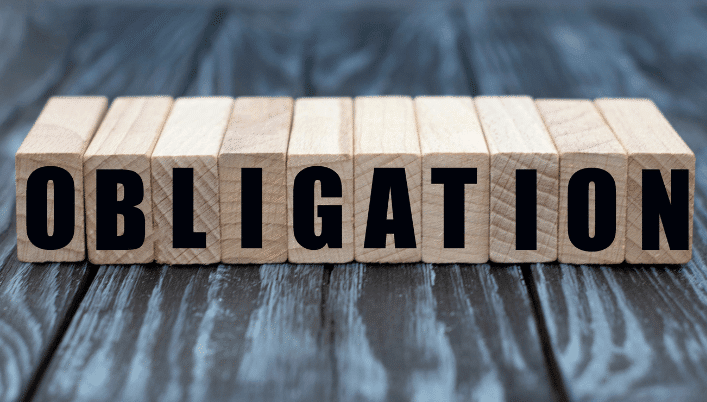Rights and Obligations of Landlords in Singapore

Rights and Obligations of Landlords in Singapore have both rights and obligations when it comes to leasing their residential properties.
They must give the tenant the right to occupy the premises for residential use when the tenant moves in.
The tenant, in turn, must pay the rent on time and take care of the property.
Before leasing the property, the landlord has the right to inspect the property with the prospective tenant.
This ensures that both parties understand the condition of the property before entering into a residential lease agreement.
The tenant must also allow the landlord to make necessary repairs and inspections during the tenancy period.
If the tenant breaches any terms of the lease agreement, such as causing damage to the property or not paying rent, the landlord is obliged to take action.
If the tenant does not pay rent, the landlord has the right to withhold rent from the security deposit or take legal action to recover the outstanding amount.
At the end of the tenancy, the landlord and tenant must agree on any deductions from the security deposit for damages beyond normal wear and tear.
If the tenant moved out without settling any outstanding payments or damages, the landlord may seek legal remedies to recover the losses.
It is important to note that unless the landlord and tenant agree to the contrary, the tenant must pay the rent stated in the lease agreement.
The lease is a legally binding contract that outlines the rights and obligations of both parties.
As such, both landlords and tenants need to understand their respective rights and obligations to ensure a smooth and fair tenancy.
Rights of Landlords in Singapore
Landlords in Singapore have specific rights that are important to be aware of.
While tenants’ rights are protected, it is crucial to understand the rights that landlords possess as well.
Just as tenants have the right to a safe and habitable space, landlords have the right to receive rent according to the agreed terms.
Should a tenant withhold rent without a valid reason, it is within the landlord’s rights to take appropriate action to recover the owed amount.
Additionally, when a tenancy agreement comes to an end, the landlord has the right to have the premises vacated by the tenant.
However, during this process, the landlord must adhere to certain obligations, such as providing sufficient notice to the tenant.
It is crucial to note that a landlord cannot force a tenant to leave unless the proper legal procedures have been followed.
In situations where the tenant is due to move out, the landlord has the right to inspect the premises and ensure that it is returned in a physically satisfactory condition, minus the appropriate wear and tear.
Ultimately, the rights of both the landlord and the tenant must be respected and upheld, unless there is an agreement to the contrary.
As a landlord in Singapore, you have certain rights that are protected by law.
These rights include:
- Landlord rights: As the owner of the property, you have the right to decide who to rent your property to and set the rental price.
- Rights and obligations: You have the right to enforce the terms and conditions of the tenancy agreement, which may include rules regarding pets, smoking, or noise levels.
- Rights and duties: You have the right to receive rental payments on time and in full, and you can take legal action against tenants who fail to comply.
- Landlord is required: You have the right to request security deposits to cover any potential damages caused by the tenant.
Obligations of Landlords in Singapore
Alongside these rights, landlords in Singapore also have certain obligations that they must fulfill.
These obligations include:
- Obligations as a landlord: You must ensure that the property is in a safe and habitable condition before renting it out.
- Landlord must ensure: You must ensure that all essential services, such as water, electricity, and gas, are installed and maintained properly.
- Landlord must pay: You are responsible for paying all local property taxes and maintaining the property in compliance with the Singapore Building and Construction Authority regulations.
- Must provide: You must provide the tenant with a copy of the tenancy agreement, as well as any necessary documentation regarding the property.
Proper maintenance and repairs are also essential obligations for landlords in Singapore.
It is your responsibility to carry out repairs promptly and ensure the property is in good condition.
How to Ensure Compliance with Landlord Rights and Obligations in Singapore
To ensure compliance with landlord rights and obligations in Singapore, it is advisable to seek legal advice and stay updated on relevant legislation.
Engaging a qualified property lawyer can help you understand your legal rights, duties, and obligations as a landlord.
Compliance is crucial to maintain a positive relationship with your tenants and avoid potential legal issues.
Regular communication with your tenants and addressing any concerns promptly can also help maintain a harmonious rental relationship.
http://www.youtube.com/watch?v=68ADjtVa18g
In conclusion, being aware of your rights and obligations as a landlord in Singapore is crucial for a successful rental business.
By understanding the legal framework and fulfilling your obligations, you can foster positive tenant relationships and effectively manage your property.
Key Takeaways
- Landlord Rights:
- Decide who to rent the property to.
- Set the rental price.
- Enforce tenancy agreement terms.
- Landlord Obligations:
- Ensure property safety and habitability.
- Maintain essential services (water, electricity, gas).
- Pay local property taxes.
- Requesting Security Deposits:
- Landlords can request security deposits for potential damages.
- Compliance Importance:
- Staying compliant with laws is crucial.
- Seek legal advice to understand rights and duties.
- Communication and Relationship:
- Regularly communicate with tenants.
- Address concerns promptly for a positive relationship.
- Property Manager Role:
- Property managers act as intermediaries.
- Ensure rights and obligations are upheld.
- Property Manager Selection:
- Choose a property manager with experience.
- Seek legal advice to navigate the complex legal landscape.
- Tenant Use of Property:
- Tenants have rights to use the property for intended purposes.
- Comply with safety standards to avoid risks.
- Prohibited Tenant Activities:
- Avoid illegal, dangerous, or lease-violating activities.
- Inform the landlord before moving out early.
- Tenant Property Alterations:
- Seek permission from the landlord before making changes.
- Discuss responsibilities and costs for modifications.
Landlord and Tenant Rights and Obligations in Singapore

As a landlord in Singapore, it is important to understand your rights and obligations to ensure a successful and compliant rental business.
This article will provide an overview of the rights and obligations of landlords in Singapore, as well as offer some helpful tips for maintaining a positive relationship with tenants.
Rights of Landlords in Singapore
As the owner of the property, you have specific rights that are protected by law.
These rights include:
- Landlord rights: You have the right to decide who to rent your property to and set the rental price.
- Rights and obligations: You have the right to enforce the terms and conditions of the tenancy agreement, which may include rules regarding pets, smoking, or noise levels.
- Rights and duties: You have the right to receive rental payments on time and in full, and you can take legal action against tenants who fail to comply.
- Landlord is required: You have the right to request security deposits to cover any potential damages caused by the tenant.
Obligations of Landlords in Singapore
Alongside these rights, landlords in Singapore also have certain obligations that they must fulfill.
These obligations include:
- Obligations as a landlord: You must ensure that the property is in a safe and habitable condition before renting it out.
- Landlord must ensure: You must ensure that all essential services, such as water, electricity, and gas, are installed and maintained properly.
- Landlord must pay: You are responsible for paying all local property taxes and maintaining the property in compliance with the Singapore Building and Construction Authority regulations.
- Must provide: You must provide the tenant with a copy of the tenancy agreement, as well as any necessary documentation regarding the property.
- Proper maintenance and repairs: It is your responsibility to carry out repairs promptly and ensure the property is in good condition.
How to Ensure Compliance with Landlord Rights and Obligations in Singapore
To ensure compliance with landlord rights and obligations in Singapore, it is advisable to seek legal advice and stay updated on relevant legislation.
Engaging a qualified property lawyer can help you understand your legal rights, duties, and obligations as a landlord.
Compliance is crucial to maintain a positive relationship with your tenants and avoid potential legal issues.
Regular communication with your tenants and addressing any concerns promptly can also help maintain a harmonious rental relationship.
http://www.youtube.com/watch?v=-ydZQze8YSo
In conclusion, being aware of your rights and obligations as a landlord in Singapore is crucial for a successful rental business.
By understanding the legal framework and fulfilling your obligations, you can foster positive tenant relationships and effectively manage your property.
Dispute Resolution for Landlord-Tenant Disputes in Singapore

Mediation
In the event of a dispute between a landlord and tenant in Singapore, mediation can be a useful method of resolving conflicts.
Mediation is a voluntary process where a neutral third party, known as a mediator, facilitates open communication and assists both parties in reaching a mutually agreeable solution.
During mediation, the mediator helps the landlord and tenant understand each other’s perspectives and encourages them to explore options for resolution.
The mediator does not make decisions but guides the process to promote understanding and compromise.
Mediation can be particularly beneficial when dealing with issues such as breaches of the tenancy agreement or disputes over the right to enter the property.
It provides an opportunity for both parties to express their concerns and work towards a resolution that satisfies their needs.
Arbitration
Arbitration is another alternative dispute resolution method that can be employed by landlords and tenants in Singapore.
Unlike mediation, arbitration involves a neutral third party, known as an arbitrator, who has the authority to make binding decisions.
If a landlord wishes to resolve a dispute through arbitration, both parties must agree to submit the matter to arbitration.
The arbitrator reviews the evidence presented by both sides and makes a final decision that both parties are legally bound to honor.
Arbitration is a preferred method when the landlord and tenant are unable to reach an agreement through negotiation or mediation.
It provides a more formal and structured process, similar to a court proceeding, but with fewer formalities and costs.
Court Proceedings
In certain cases where mediation and arbitration fail to resolve the dispute, court proceedings may be necessary.
For example, if a tenant fails to pay rent and refuses to vacate the premises, the landlord may have to initiate legal action to regain possession of the property.
In court proceedings, both parties present their arguments and evidence to a judge who makes a final decision.
It is essential to note that court proceedings can be time-consuming and costly, and should be considered as a last resort when all other options have been exhausted.
Landlords should ensure they have followed the appropriate legal procedures, such as serving the tenant with the necessary notices, before initiating court proceedings.
It is also advisable to consult with a lawyer experienced in landlord-tenant issues to guide them through the legal process.
In conclusion, landlords and tenants in Singapore have several methods at their disposal to resolve disputes.
Mediation and arbitration provide alternative avenues for resolving conflicts outside of the court system.
However, if these methods fail, court proceedings may be necessary to enforce legal rights and obligations.
Both landlords and tenants need to seek legal advice when faced with a dispute to ensure compliance with Singapore’s laws and regulations.
Property Managers in Singapore

The Role of a Property Manager in Singapore
In Singapore, property managers play a crucial role in the management of rental properties.
They act as intermediaries between landlords and tenants, ensuring that the rights and obligations of both parties are upheld.
Property managers have a range of responsibilities, including:
- Obligations of Landlord and Tenant: Property managers are responsible for ensuring that both the landlord and tenant fulfill their obligations as outlined in the tenancy agreement. This includes the timely payment of rent, proper upkeep of the property, and adherence to any rules and regulations set by the landlord.
- On behalf of the Landlord: Property managers act as representatives of the landlord, handling various tasks such as advertising vacant properties, screening potential tenants, and managing lease agreements. They also handle the collection of rent and address any maintenance issues that may arise.
- Property Managers and Management Companies: Property managers can work independently or as part of a management company. Management companies often oversee multiple properties and provide additional services such as property maintenance, financial management, and legal representation.
- Reliable Insurance Quotes: Property managers can assist landlords in obtaining reliable insurance quotes for their rental properties. This ensures that both the landlord and tenant are adequately protected in the event of accidents, damages, or liability claims.
How to Choose a Property Manager in Singapore
When choosing a property manager in Singapore, landlords should consider the following factors:
- Legal Advice: Seek legal advice to ensure compliance with all relevant laws and regulations, as property managers must navigate a complex legal landscape.
- Implied Warranty of Habitability: A property manager should be knowledgeable about the landlord’s obligation to provide a habitable living space and address any maintenance or repair issues promptly.
- Property Manager Selection: Conduct thorough research and background checks to ensure the property manager has experience, a good track record, and a solid reputation in the industry.
- Application Forms: Property managers should have an efficient and transparent process for tenant applications, including thorough screening procedures to ensure reliable and responsible tenants.
- Confident Insurance: A property manager should be able to provide reliable and affordable insurance options for both landlords and tenants, ensuring adequate coverage in case of unforeseen events.
Responsibilities of a Property Manager in Singapore
Property managers have several obligations to fulfill, ensuring the smooth operation of rental properties:
- Obligation to Collect Rent: It is the responsibility of the property manager to collect rent from tenants promptly and facilitate secure transactions.
- Obligation to Address Maintenance Issues: Property managers must handle maintenance and repair requests from tenants promptly and efficiently, ensuring that the property remains in good condition.
- Interest in the Property: Property managers act in the best interest of the landlord, ensuring that rental properties are maintained and managed effectively, maximizing returns, and preserving the value of the investment.
- Property Manager Duties: Property managers are responsible for advertising and marketing properties, screening potential tenants, conducting property inspections, and ensuring lease agreements are followed.
- Current Legislation: Property managers must stay up to date with the latest residential tenancies legislation and ensure compliance with all relevant laws and regulations.
In conclusion, property managers play a vital role in the management of rental properties in Singapore.
They act as intermediaries between landlords and tenants, ensuring that both parties fulfill their rights and obligations.
When choosing a property manager, landlords should consider their experience, knowledge of relevant laws, and ability to provide reliable insurance options.
Property managers must fulfill their responsibilities diligently, including rent collection, property maintenance, and compliance with current legislation.
Use of Property by Tenants in Singapore

Permitted Use of Property by Tenants
When renting a property in Singapore, tenants have certain rights and obligations regarding the use of the premises.
Both tenants and landlords need to understand what is allowed and what is prohibited to ensure a smooth and harmonious tenancy.
Tenants have the right to use the property for its intended purpose as stated in the lease agreement.
This includes using the property as a residence or for approved commercial activities.
However, tenants need to be aware of any restrictions on the use of the premises, such as rules against subletting or using the property for illegal activities.
It is also important for tenants to ensure that their use of the property complies with common safety standards.
This includes not engaging in activities that could pose a risk to themselves, other occupants of the property, or neighboring properties.
For example, using the property for activities that involve fire hazards or excessive noise may be considered unsuitable for residential use.
If tenants have any questions about the permissible use of the premises, it is advisable to consult the landlord or property manager for clarification.
They can guide any restrictions or guidelines that tenants need to follow to ensure a safe and comfortable living or working environment.
Prohibited Use of Property by Tenants
While tenants have certain rights regarding the use of the property, there are also restrictions that they need to be aware of.
Prohibited use of the property can include activities that are illegal, dangerous, or violate the terms of the lease agreement.
Tenants should not engage in activities that create dangerous conditions within the property or pose a risk to neighboring properties.
This could include activities such as unauthorized modifications to the property that compromise its structural integrity or using the property for manufacturing or storage of hazardous materials.
If tenants plan to move out of the property before the end of the lease term, they need to inform the landlord in advance and follow any procedures outlined in the lease agreement.
Failure to do so may result in financial penalties or legal consequences.
It is important to note that the burden of repair and maintenance generally falls on the landlord.
However, tenants are responsible for ensuring that the property is kept in good condition and report any damages or maintenance issues to the landlord or property manager promptly.
Alterations to Property by Tenants
Tenants may wish to make modifications or alterations to the property to suit their specific needs or preferences.
However, it is important to obtain permission from the landlord before making any changes.
The lease agreement may include restrictions or guidelines regarding tenant modifications to the property.
Tenants need to comply with these guidelines to avoid any disputes or penalties.
Tenants should also be aware that they may be responsible for the cost of repairs or restoration if any damage occurs as a result of their modifications.
It is advisable to discuss the proposed alterations with the landlord or property manager and reach a mutual agreement on the responsibilities and costs involved.
In conclusion, tenants in Singapore have certain rights and obligations regarding the use of the property.
Tenants need to understand what is permitted and what is prohibited to ensure a smooth and successful tenancy.
By following the guidelines provided by the landlord or property manager and communicating openly, both tenants and landlords can maintain a positive landlord-tenant relationship.
Conclusion
In conclusion, understanding the rights and obligations of landlords in Singapore is crucial for both landlords and tenants.
By knowing their respective roles and responsibilities, they can ensure a smooth and mutually beneficial landlord-tenant relationship.
Landlords must provide tenants with a safe and habitable property.
They must also carry out necessary repairs and maintenance to ensure the property is in good condition.
Additionally, landlords must provide tenants with proper written notice before entering the property for inspections or repairs.
On the other hand, tenants have the right to enjoy a peaceful and comfortable living environment.
They are responsible for paying rent on time and keeping the property in good condition, aside from normal wear and tear.
Tenants also have the right to request repairs and expect prompt action from the landlord.
In the event of a dispute, both parties should first try to resolve it amicably.
If that proves unsuccessful, they can seek mediation or arbitration services to settle the matter.
Both landlords and tenants need to understand the terms and conditions of the lease agreement.
This document outlines the rights and obligations of both parties and serves as a legally binding contract.
Any changes or amendments to the lease should be agreed upon in writing by both parties. Tenat’s obligations must allow a tenant to withhold rent.
Renting a residential property in Singapore comes with certain rights and responsibilities for both landlords and tenants.
By adhering to these obligations, landlords can ensure the satisfaction and well-being of their tenants, while tenants can enjoy a safe and comfortable living environment.
Open communication and mutual respect are key to maintaining a harmonious landlord-tenant relationship.
Frequently Asked Questions
What are the rights and obligations of a landlord?
The rights and obligations of a landlord encompass various aspects of tenancy, including the duties related to the premises, repairs, rental payments, and the use of the property.
What is tenancy?
Tenancy refers to the agreement or arrangement between a landlord and a tenant for the occupation and use of a property in exchange for payment of rent.
How should the premise be inspected?
The premise should be inspected by the landlord or a tenant to ensure its condition before and after the tenancy.
This helps in assessing any damages or wear and tear that may occur during the tenancy period.
What happens if the landlord fails to make necessary repairs?
If the landlord fails to make necessary repairs that they are responsible for, the tenant may have the right to deduct the cost of repairs from their rent or seek legal remedies by the Residential Tenancies Act.
Can a landlord evict a tenant without a valid reason?
No, a landlord cannot evict a tenant without a valid reason as provided by the Residential Tenancies Act.
There must be sufficient grounds for eviction, such as non-payment of rent or breaching the terms of the rental agreement.
What are the rights and duties of a tenant?
The rights and duties of a tenant include paying the rent on time, taking care of the property, reporting any necessary repairs, and adhering to the terms and conditions outlined in the rental agreement.
What obligations does a tenant have regarding rental payments?
A tenant is obliged to pay the rent as agreed upon in the rental agreement.
Failure to do so may result in consequences, including eviction or legal action from the landlord.
What rights are a tenant entitled to?
A tenant is entitled to enjoy the peaceful use and possession of the property, as well as the right to privacy and proper maintenance of the premises by the landlord.
What happens if a landlord is in breach of their obligations?
If a landlord is in breach of their obligations, such as not providing necessary repairs or violating the terms of the rental agreement, the tenant may be entitled to seek legal remedies, terminate the tenancy, or receive compensation.
Can a tenant withhold rent if the landlord fails to make repairs?
In certain circumstances, a tenant may be allowed to withhold rent if the landlord has failed to make necessary repairs as required by law.
However, this should be done by the Residential Tenancies Act and after seeking legal advice.












